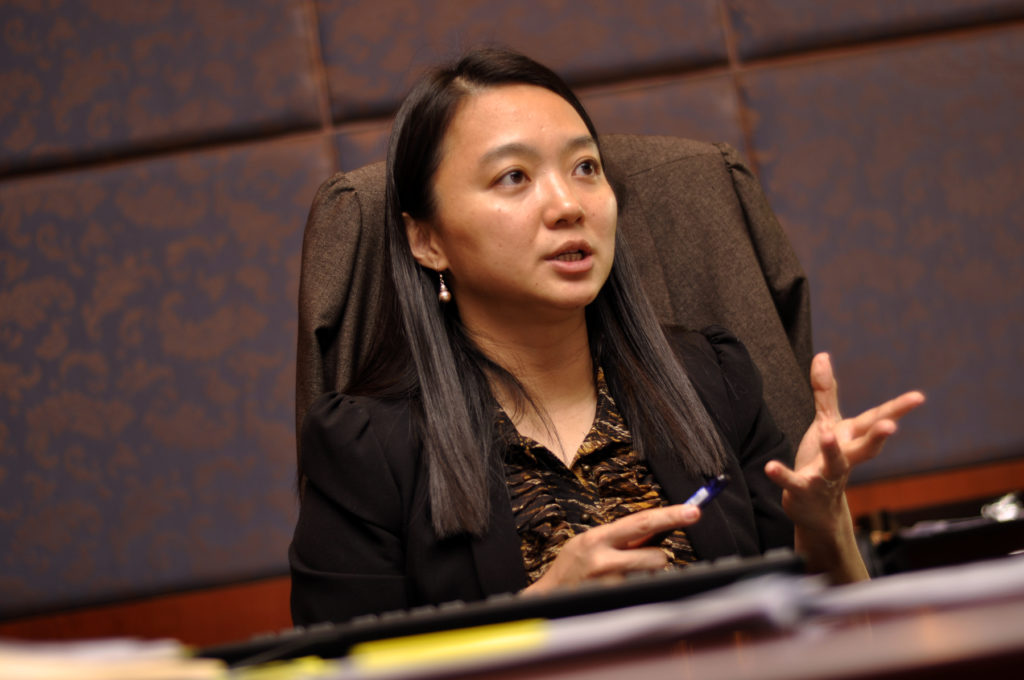For the last two years, the World Wide Web Foundation’s Open Data Lab Jakarta has worked with government and civil society actors in Malaysia to advocate for more openness in the Malaysian government. While Malaysia has initiated several open data initiatives in the past, like the launch of its national government open data portal, the overarching legal framework impedes a culture of openness and transparency within government. For one, the Official Secrets Act is still in place, which makes all government documents classified by default, and the Freedom of Information Act (FOIA) has not yet seen the light of day. However, while there is no FOIA at the national level, two of the 15 Malaysian states – Selangor and Penang – have passed the regulation.
We partnered with two organisations in Malaysia who are leading advocates for open data at the state level – the Selangor State Legislative Assembly and the Institute for Democracy and Economic Affairs (IDEAS), a think-tank that promotes market-based solutions to address public policy challenges. To celebrate this month’s International Women’s Day, we spoke with two women who are our main partners – Hannah Yeoh Tseow Suan, currently the Speaker of the Selangor State Assembly, and Tricia Yeoh, the Chief Operating Officer of IDEAS. Tricia partnered with the Selangor State Assembly to make legislative data more open to the public while Hannah, from the inside, initiated major reforms in public disclosure mechanisms of the legislative chamber.
What processes are necessary to ensure citizen’s access to data?
Hannah: It is the foundational legal basis that is an important factor. In the State of Selangor, the FOI Enactment 2011 was passed on 25 August 2011 and came into force on 5 March 2013. I incorporated the spirit of FOI into the administration of the Selangor State Legislative Assembly. We continue to provide live telecast for all assembly sittings, the publication of select committee reports, state enactments and other relevant legislative documents.
Tricia: A vibrant democracy, where the culture of dissent and accountability is encouraged is critical. Selangor is run by a political coalition that forms the opposition at the national level. Pakatan Harapan, or Pakatan, as we call it, started out from the beginning as wanting to project a distinct image of itself as being more open to reform, transparency, accountability and good governance.
What are the important ingredients for open data to take root in state governments?
Tricia: We need committed leaders at the top. In the case of Selangor, it helped that we had a very able champion for open government and open data in the form of YB Hannah. Because she has carved out that niche for herself in wanting to reform the State Assembly, it was only natural that we were able to connect and utilise these common interests. But this is just the start. There should also be political participation on the part of citizens. This is the reason why IDEAS continuously advocates for data use.
Hannah: I agree with Tricia that the political commitment is critical. Right to information is crucial and only legislation can make this possible. In the case of Selangor, the enactment was put in place to promote accountability and transparency, which serves to eliminate corruption. Also, it is the taxpayers’ money that keeps the state running – why should we hide information from them? Given the strong majority we possessed in the Selangor State Legislative Assembly, this sunshine law was made. The State of Selangor went against the national trend of secrecy.
I also agree with Tricia on the point of people’s use of data. In one of the meetings with Open Data Lab Jakarta, we realised the true meaning of open data – that it is simply not enough to just put the data and information out there, but those data must be easily accessible and processed for public consumption. People have to be assisted to use this data to demand better public services and to scrutinise government performance.
What can be the greatest challenge for openness in Malaysia?
Hannah: Changing the mindset of the civil service in how we treat data and information remains the most challenging task as they were all trained to handle these based on the Official Secrets Act. This mindset affects how data is collected, managed, and published. For example, a lot of information is not digitised. The documents we publish on our website are not easily searchable. We still have room for improvement and we must move towards that.
Tricia: I think one main problem is the lack of incentives. Civil society tries to show that governments would benefit from open government and open data, but government does not see it as beneficial to them. This is due to the pre-existing political structures in Malaysia, where patronage is a better indicator of political success than good governance. This is changing, as we see in Selangor, but we still have a long way to go.
Open Data Lab Jakarta has been active in Malaysia in the last year, thanks to the partnerships created with these organisations. We also worked with a few other partners like the Sinar Project, in seeking new ways of using open data to promote stronger accountability mechanisms within government. To find out more about the Jakarta Lab’s activities, visit our project pages, check out our blog, or follow us on Twitter @ODLabJkt.


Leave a Reply